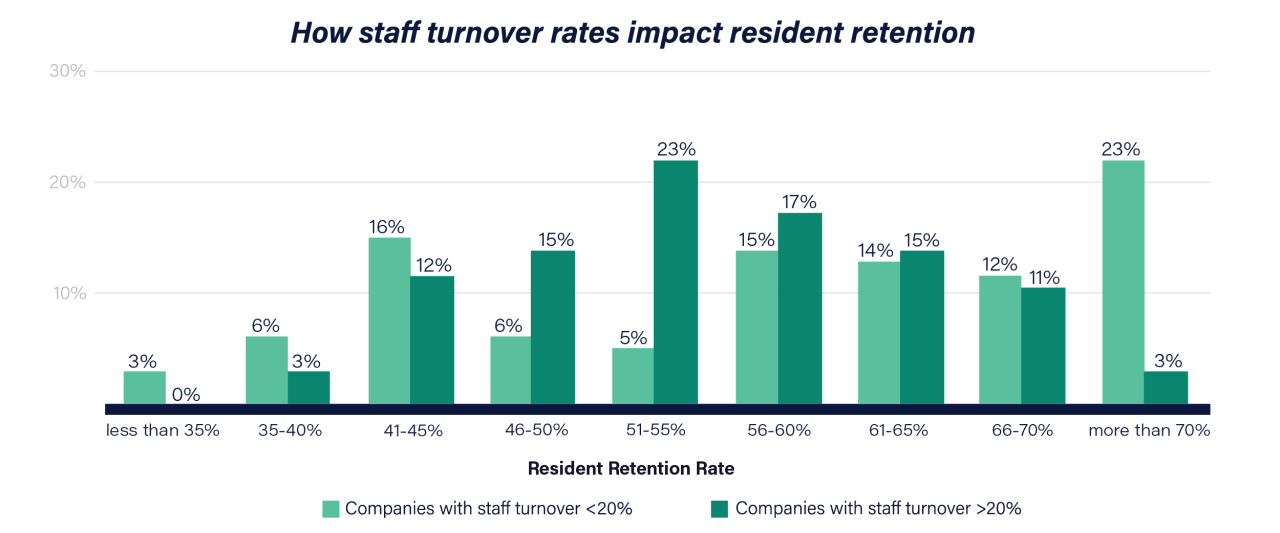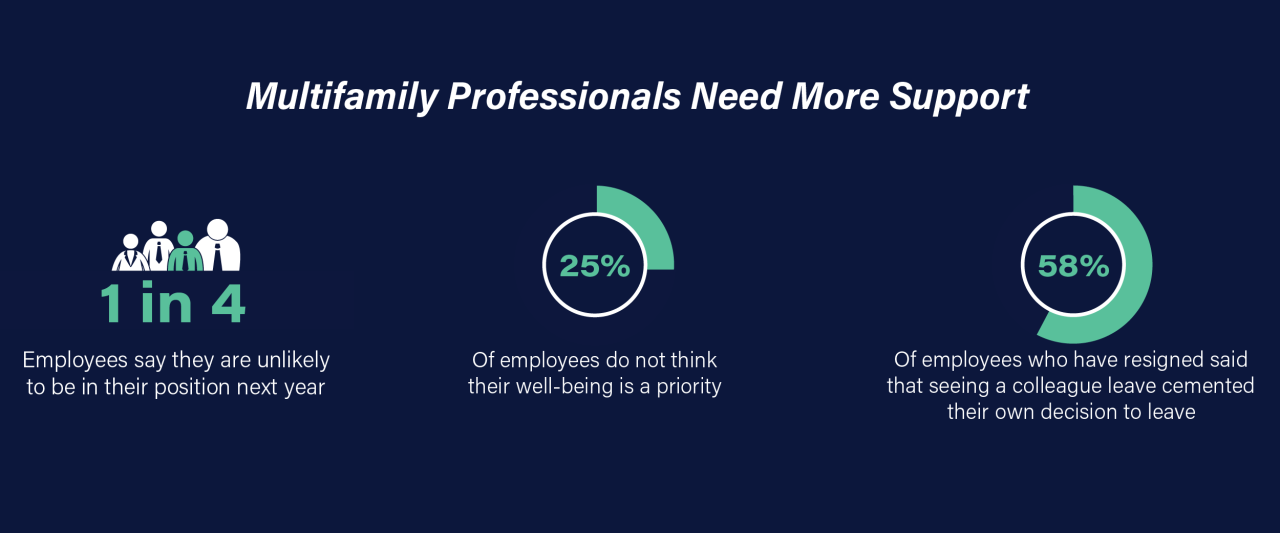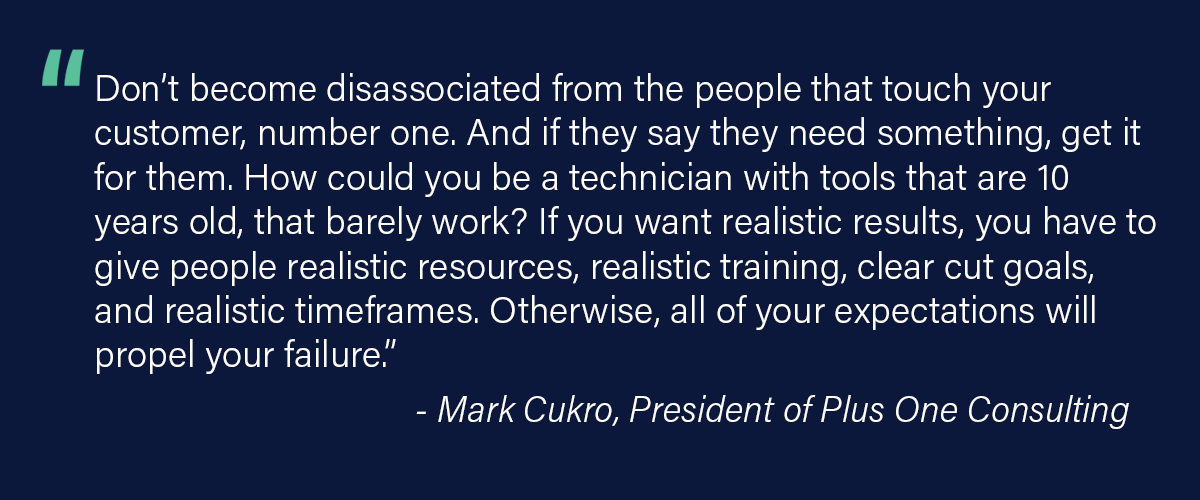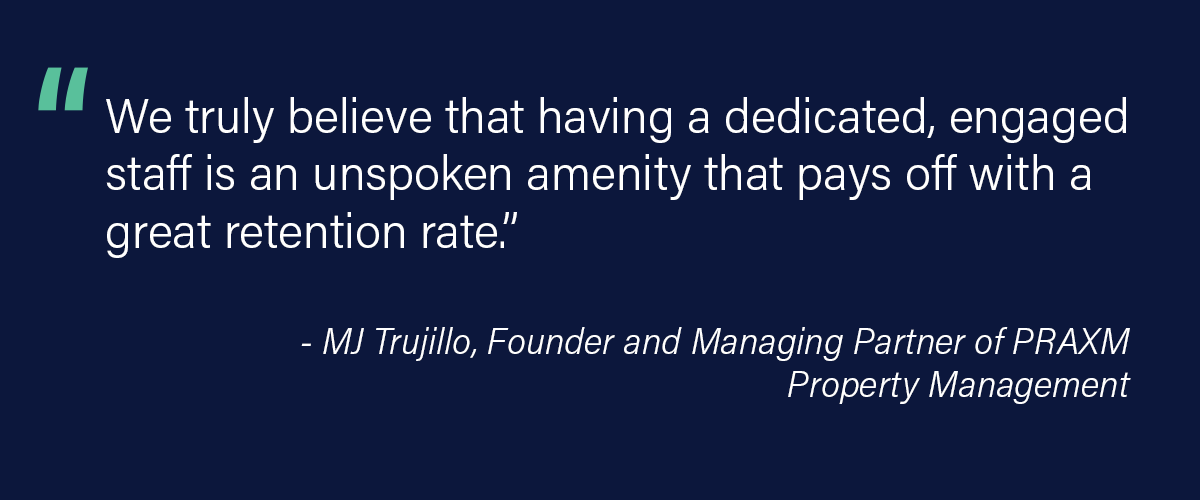Multifamily Blogs
Why community associate turnover is so high (and what to do about it)
Why community associate turnover is so high (and what to do about it)
Offering a positive resident experience benefits many areas of your business, especially renter retention and acquisition. There are many ways to create a great living experience for your residents, but one key factor sometimes gets overlooked - your community associates.
That’s because happy and fulfilled employees are far more likely to be attentive and courteous to your residents. When you don’t have happy on-site teams, or if you’re short-staffed, there’s a high likelihood that your residents will be underserved when they need assistance. Ultimately, interactions with your on-site teams shapes how residents feel about their community. That influences their decision to renew or move somewhere else.
Sadly, one of the top challenges in our industry is keeping communities properly staffed. In the past year, that problem keeps getting worse.
Here’s what’s driving employee turnover at your communities and some ways you can keep your team members happy.
Employee turnover rates at apartment communities are at an all-time high
Under normal circumstances, turnover for on-site teams is usually around 30-50%. This is higher than other industries. But in the current labor market, NAA estimates turnover is now as high as 70%!
That’s because The Great Resignation is making it even harder for apartment communities to keep employees. The non-stop demands of running a community (especially during the height of COVID) paired with lackluster salaries are making many people say “I quit.”
A recent survey of property management companies asked how turnover has changed over the past year. Half of companies say they have higher employee turnover than a year ago.

Why does it matter what my employee turnover rate is?
Clearly, the property management industry is having a hard time keeping employees. But is it having a negative impact on your communities?
Absolutely. Without a full team of engaged employees, many parts of your business start to unravel.
Employee happiness impacts renter retention
Staffing levels play a big role in how your renters feel about the community. Picture a community that doesn’t have enough employees. Residents either have to wait to be helped or settle for solving their problem themselves.
People want swift service when it comes to their home. Without team members to ensure seamless experiences are happening, satisfaction levels are bound to sink.
Under-served residents won’t stick around. Data shows that multifamily companies who have high employee turnover also have a hard time keeping renters too.

Grace Hill further proved the connection between happy employees and resident retention. They calculated that renters are 6% more likely to renew when a community has engaged employees.
Poor resident experiences affect reputation and leasing
Retention isn’t the only thing that suffers when a community doesn’t have enough engaged employees. The reviews for your property also take a hit.
Renters who don’t receive great service from your community spread the word on review sites. In 2021, the top complaint by renters in one to three star reviews was poor customer service according to J Turner Research.
Of course, this can lower the number of visits you get by potential renters. That’s because 79% of people say they will not visit a property if the reviews are bad.
And for the people who do end up visiting, an interaction with a disengaged community associate can be a turn off. NAA reports that 20% of renters said on-site staff had a strong influence on their renting decision. Also, 55% said that staff caring about renters was the most important factor for selecting their apartment.
Employee retention isn’t prioritized enough in the multifamily industry
Why is employee turnover in the multifamily industry so high right now? One reason may be that companies aren’t putting enough effort into keeping their employees happy.
A recent survey of multifamily professionals asked respondents to rank their business priorities. Do you know what was at the very bottom of that list? Employee satisfaction and retention.

Some employees are clearly receiving the message that their job happiness isn’t important. NAA’s Mental and Emotional Health Survey surveyed 2,300 multifamily professionals. A quarter of them say that employee well-being isn’t a priority at their company.
Employees who question if their organization values their well being will likely only be around for the short term. The same NAA survey found that 1 in 4 employees are unlikely to stay at their current job for another year.
Unfortunately, quitting is contagious. 58%of employees who have resigned in the past year said that seeing co-workers leave cemented their own decision to leave.

Tips to reduce employee turnover at multifamily communities
If you want to stop the cycle of high turnover rates, it’s time to rethink the employee experience. Because, as we’ve seen by several data sources, it’s clearly tied to resident retention. Aside from boosting wages, here are some ways to keep your team members happy.
Offer more self service options to free up employee bandwidth
Working at an apartment community is extremely demanding. Community managers juggle so many duties. And according to a Swift Bunny study, 30% say their workload is unmanageable. Plus, 27% say they do not have the tools to adequately perform their jobs.
This is why automation and self-service options are a community manager’s best friend. Many of your communities are short-staffed. And the associates you have are doing the job of more than one person. Self-service and automation frees up their time. Plus, it prevents burnout because they aren’t performing the same menial tasks over and over again.
Relying on technology isn’t short-changing your residents either. According to a Zendesk survey of their customers, 67% of consumers would rather use self service channels than interact with a human. These on-demand services are convenient for both residents and community managers.
Here are the best ways to use self service in your community:
- Rent payments
- Package lockers and notifications
- Vehicle registrations
- Booking clubhouse facilities
- Registering guests
- Issuing temporary access codes to service workers
- Pet registrations
- Self-guided leasing tours
Automating community-level tasks used to worry on-site employees. Many felt that technology would be used to replace them.
But since many communities are already lean on employees, automation has become a lifesaver. It lets employees make better use of their time and focus on face-to-face interaction with your residents.
Highland Ranch REIT said in a recent call with analysts that its new technology offerings that automated many processes allowed it to cut its headcount by 30% and increase customer satisfaction scores by 24%!
Devote more time to training
Your communities have likely been understaffed for some time. So when a new hire starts, you may be tempted to have them dive in head first. Don’t do this!
Improper training is one of the top four reasons that leads to job unhappiness. Swift Bunny’s survey of community managers reported that 45% said their first week was disorganized. And 36% said they didn't have enough time to train before they were expected to perform their duties.

So before you get your new hires on the front lines, make sure they fully grasp your company’s processes and technology platforms. This benefits them, plus it’s a better experience for residents who come to them seeking help. When they are properly trained, employees are more confident and deliver better outcomes – a win-win for everyone.
Check in and connect with on-site team members
This may not sound like groundbreaking advice, but regularly asking “How are you doing?” is rather effective in today’s burn and churn workforce.
On-site associates want to know they are valued team members. When they do, it leads to better performance. According to the ADP Research Institute, team members who said they trusted their team leader were 12 times more likely to be fully engaged at work.
Start building this trust by routinely asking them about their workload. Are they feeling overworked? What challenges are they facing?
Since there’s so much activity happening in community offices, it’s probably not wise to call them out of the blue to check in. That just disrupts their day. Plus, they may not be prepared to give honest feedback when a conversation is spur of the moment.
Instead, make sure to set aside time for regular check-ins. This allows team members to prepare the topics they want to share. Even if they don’t have any pressing issues to discuss, it gives them a platform to vent any concerns, frustrations, or even the high points of their job.

Improving the employee experience will give residents better living experiences
Improving the employee experience for your on-site associates ultimately delivers a long list of benefits for your company. Not only will your communities stay fully staffed, but it leads to higher renter retention and a better online reputation. That’s why it’s important to analyze what aspects of your community operations can be streamlined. By removing the most tedious aspects of their jobs, team members will feel more fulfilled in their role.
When you subscribe to the blog, we will send you an e-mail when there are new updates on the site so you wouldn't miss them.


